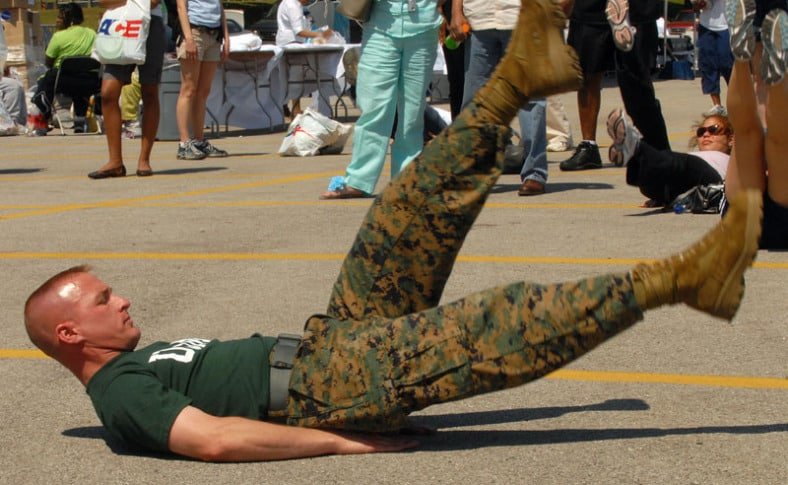
Science-Backed Up Strategies How A Soldier Can Boost His Health And Performance

Every soldier needs the toughest physical strength. And so he needs to invest in his health, enhance his vigor and endurance, and most of all, see to it that he has proper nutrition since his limits are constantly being tested in battle.
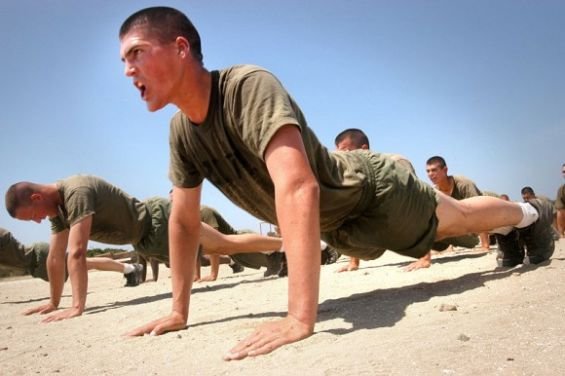
All over the world researchers are trying to find a way to improve physical performance and health for soldiers. Such studies have a goal to improve the effectiveness and readiness of the military, as it is explained in The Journal of Strength and Conditioning Research special issue from November. That is NSCA’s (National Strength and Conditioning Association) official journal dedicated to research on the topic and signed by Wolters Kluwer as the publisher.
Governments, however, focus on performance enhancements that are in the least invasive form, with the goal of protecting the health of the soldiers. This special issue from the Third ICSPP’s (International Congress on Soldiers’ Physical Performance) is drawn as a means to update the efforts for optimization of the human i.e. military performance with the use of science, injury prevention, and physical fitness research.
Increasing Soldiers’ Health and Physical Performance
The Department of Defense’s Survey of Health Related Behaviors conducted in 2008 has shown that in the Army there were 13% of soldiers who were obese, according to the formula for body mass index. The same number was 2% less in 1995, so 11%. Obesity in the Army is, of course, much less than in the general population, but this increase is mirroring the rate of the general population’s obesity increase.
Furthermore, an assessment conducted by the Army in 2011 regarding public health indicated that this body fat excess in the army is connected to decreased performance and injury, which both naturally make maintaining the combat readiness of units difficult.
As for meeting the body fat and weight standards set for the Army, one in every six soldiers or 16.4% reported difficulties.
Additionally, soldiers who are even fit for deployment can also face certain difficulties in maintaining their weight at a healthy optimum while they are deployed for prolonged periods of time.
A study conducted by the U.S. Army Public Health Command and the U.S. Army Research Institute of Environmental Medicine showed that while deployed, a Soldier’s exercise practice may be prevented and diverse missions may very well prohibit sports activities during deployment.
“Literature suggests that fitness decreases and fat mass increases during deployments,” said Dr. Theresa Jackson, a scientist for public health at the U.S. Army Public Health Command.
Obesity Can Lead To Serious Health Problems If Left Unchecked
“In addition to heart disease, obesity can lead to breathing problems, arthritis, cancer, diabetes and ultimately, premature death,” said Jackson.
The U.S. Army Public Health Center, or USAPHC, has initiated an Army Wellness Center program with the intent on integrating it into 38 locations throughout the Army within a five-year period. The goal is to provide the Army with centers for community resources that are there to provide lifestyle tools for Soldiers and enable them to improve their well-being and health.
The array of standard services provided by these centers includes opportunities for Soldiers to maintain a healthy weight, do metabolic tests, receive nutrition education, and basic weight management.
Metabolic Testing May Be Necessary
An AWC health assessment includes metabolic testing with the goal of determining the basic metabolic rate of an individual. This shows the rate at which the individual in question burns calories when resting. If this subject wishes to lose weight or needs nutrition counseling, a basic guide or at least a referral will be provided by the AWC for more individualized counseling on nutrition with a registered dietitian.
“This package includes basic weight management tips, body composition review and encouragement of … behavior changes,” said Todd Hoover, program manager for the Army Wellness Centers Operations Program at the USAPHC.
The Soldier Fueling Initiative was also unveiled recently by The Army, lead by the Joint Culinary Center of Excellence and the Initial Military Training Center of Excellence, and also supported by the U.S. Army Public Health Center (USAPHC). The initiative was mandated in 2011, in February, and it is targeting Army personnel in 10 sites throughout the continental U.S. which are in the individual and basic combat training.
Know What Every Man In The Military Eats
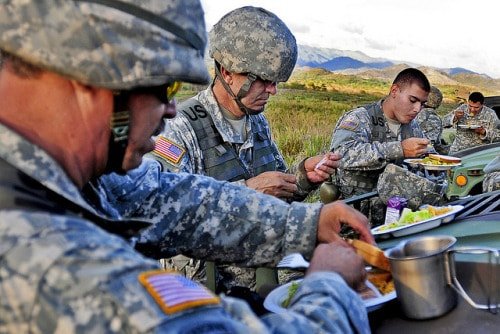
To achieve this, everything the soldiers ate and drank was labeled in a different color as an indication of the health benefits. Red marked items whose nutritional value was low, amber indicated moderate, and green indicated those foods that are the richest in nutritional content and were the best choice.
“The goal is to create an environment where healthy behaviors can take place,” said Jackson. Lt. Col. Sonya Cable, program manager for the SFI. He said this program is what provides Soldiers with the fuel they require for their Soldier duties.
Assess The Current Wellness Programs Being Undertaken
“Initial Military Training’s Soldier Fueling Initiative, a community effort, sets a training table for our new Soldier athletes while educating them on the proper fuel to achieve their specific performance goals,” said Cable.
Jackson also said that the SFI got some positive feedback. He helps with the evaluation and assessment of such promotional health and public health programs effectiveness for the military.
“Even the dining facility workers who prepare the foods said by learning to prepare food in a healthier fashion, they are taking home these practices to their own families,” said Jackson. “It’s not one individual program component, but a combination of factors that make this initiative effective.”
Balanced Diet May Be Challenging But Should Always Be A Priority
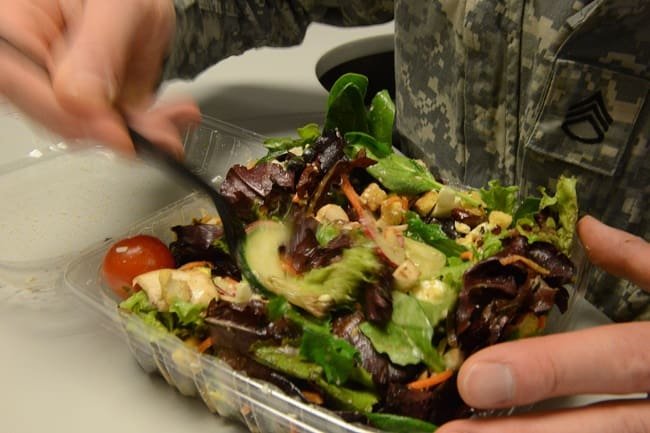
Healthy weight and a balanced diet are not easy to maintain, but for performance and health, it is important to have a proper mix of fuels. Researchers found that complex carbohydrates are also needed for balancing your diet, as well as moderate fat and lean protein.
“This can be easily done by consuming a variety of foods from all five food groups (dairy, fruit, vegetable, protein, and grains) as close to the natural form as possible,” said Lt. Col. Sandra Keelin, a registered dietitian at the USAPHC.
Keelin also indicated that the right meal timing and hydration are every bit as important as eating the right stuff. Eating frequent, small meals is preferable to skipping them or having large meals.
Make Healthy Choices As Often As Everyone Could
Soldiers have a demanding busy schedule on their shoulders, and a healthy mean cooked at home can often demand more time than available. However, Keelin indicated that even is a Soldier must choose fast food, there are still healthy choices to be made.
“Most fast-food restaurants have a nutrition analysis of their menu that can be found online or on-site,” said Keelin. “Reviewing this information prior to making a selection can help guide healthier, low-calorie choices. Choose low-fat options such as baked potatoes, baked fries, fruit or a side salad. One can also choose water, low-fat milk or small juices as a healthier option over soda,” she said. Also, even if supersized meals do sound like a bargain, Keelin advises avoiding these for they generally do lead to overeating.
Besides having a balanced diet, another key factor in maintaining optimal weight for Soldiers is regular physical activity.
“Consuming lower-fat and lower-calorie diets coupled with increased physical activity is the most effective tool to curb obesity,” said Jackson.
More inLifestyle
-
`
Can’t Get Enough: Fans Rave Over Trader Joe’s Indulgent New Raspberry Treat
Trader Joe’s is known for its unique and often seasonal products that create serious buzz among its loyal customers. Their latest...
March 6, 2024 -
`
Key Questions You Should Ask Your Couples Therapist
Can You Share Your Views on Commitment and Change in Relationships? Before you dive deep into therapy, understanding your therapist’s fundamental...
February 27, 2024 -
`
The Secret to Long-Lasting Relationships? Embracing Conflicts – Not Avoiding Them!
Contrary to popular belief, conflicts are not merely obstacles to be avoided but are opportunities for growth, understanding, and deeper intimacy....
February 24, 2024 -
`
Maintain These Healthy Lifestyle Habits to Age Like ‘Super-Agers’
The quest for ageless aging is not about eluding time. It is about living your best life, irrespective of the chronological...
February 15, 2024 -
`
What Does It Take to Make the All-Time Favorite Taco at Taco Bell?
The making of a Taco Bell taco is more like an orchestra where each ingredient plays a crucial part. Let’s peel...
February 10, 2024 -
`
As Inflation Cools Down, the U.S. Economy Might Be on the Right Track in 2024
As we wave goodbye to 2023, the American economy finds itself in a fascinating phase of its journey, straddling the fine...
February 3, 2024 -
`
Compassion Fatigue Unveiled: A Deep Dive Into Emotional Exhaustion
Have you ever walked through life feeling like you’re wearing someone else’s emotional shoes? Like your heart is a sponge, soaking...
January 28, 2024 -
`
The Quest for the Perfect Rotisserie Chicken: Who Makes It Best?
Picture this: You walk into a grocery store, and the tantalizing aroma of rotisserie chicken hits you. The sizzling, savory scent...
January 18, 2024 -
`
Discover the Flavor Trends: America DoorDash Delights of 2023
In the ever-evolving landscape of modern life, where we haven’t quite reached flying cars or underwater cities, we’ve certainly embraced the...
January 9, 2024








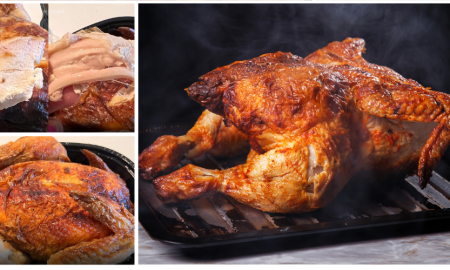






You must be logged in to post a comment Login